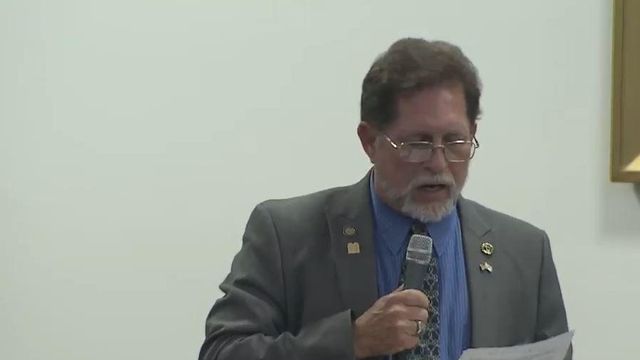Opponents raise concerns, but 'raise the age' proposal clears House
The House voted overwhelmingly Wednesday in favor of legislation that would end North Carolina's practice of trying 16- and 17-year-olds as adults for crimes.
Posted — UpdatedAfter the 104-8 vote, the measure heads to the Senate, where it has died in previous sessions. But senators included a policy statement that would set the stage for "raising the age" of juvenile court jurisdiction in the $22.9 billion budget proposal that the Senate passed last week.
Sponsor Rep. Chuck McGrady, R-Henderson, said the shift would help rehabilitate many teens who simply made a mistake, instead of sending them into adult prison where they could be victimized and turned into hardened criminals. It also would likely boost their future prospects by not having a conviction on their permanent record when trying to pursue an education or land a job, he said.
"By saddling our youth with their youthful mistakes, we limit these youths' potential for educational and occupational success," McGrady said.
Rep. Marcia Morey, D-Durham, a former District Court judge, said teens are better served by the intensive handling they receive in juvenile court than a likely suspended sentence for a first-time offense in the adult system.
"Juvenile court is not just a slap on the hand," Morey said, noting families are more involved in the process and offenders cannot get out of a detention facility simply by posting bond.
Supporters noted that most law enforcement organizations, which have traditionally opposed "raise the age" efforts, are now backing the legislation.
State Supreme Court Chief Justice Mark Martin recently called it a top priority for his effort to reform North Carolina's judicial system.
Some lawmakers, however, questioned the cost of the move and the message it sends to crime victims.
New detention facilities for juvenile offenders will be needed, and juvenile courts will need more prosecutors, clerks and counselors. House Bill 280 includes no funding for any of that.
Rep. Larry Pittman, R-Cabarrus, called the move an unfunded mandate on counties and said North Carolina shouldn't be a "lemming" just because every other state handles 16- and 17-year-old defendants differently.
"We would be telling the victims of crime that it's no big deal just because the perpetrators are under 18. That's ludicrous," Pittman said.
Others noted that the lower-level felonies that would be handled in juvenile court under the proposal include assault on an officer, burning a building and involuntary manslaughter. But supporters said the bill includes a mechanism for judges to move such cases to the adult court system if circumstances call for it.
Related Topics
• Credits
Copyright 2024 by Capitol Broadcasting Company. All rights reserved. This material may not be published, broadcast, rewritten or redistributed.






